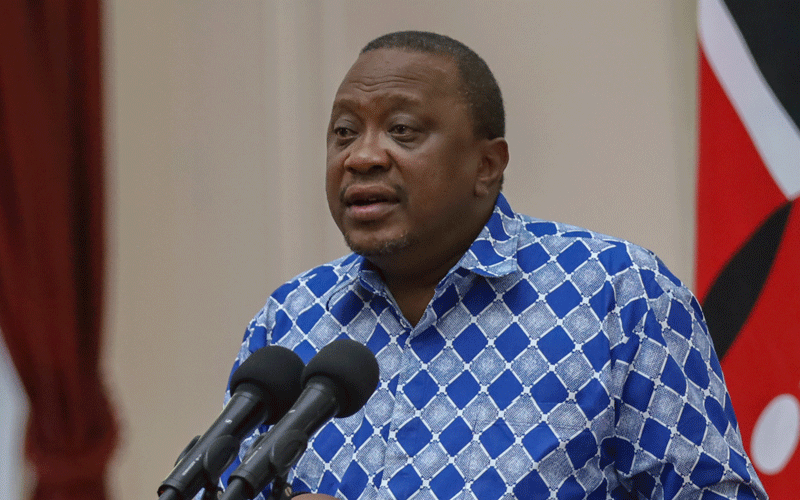Tax relief to cushion the poor, businesses from Corona shock

The economic stimulus package prescribed by President Uhuru Kenyatta on Wednesday is expected to boost businesses and put more money in the pockets of Kenyans as coronavirus crisis takes its toll on the economy.
It has three key ingredients — tax relief, protection of jobs and easing access to credit — to shield the economy and vulnerable citizens from the effects of coronavirus.
The package, which targets corporates, salaried employees and the informal sector, comes as the country descends into a dusk-to-dawn curfew tonight.
Experts say the tax cuts will boost household spending and increasing firms’ after-tax profits.
Francis Kamau, a partner at Ernst & Young, said the corporate relief has two remedies: to pay dividends and shield employees from layoffs.
“These tax reliefs are very big…for companies, it will offer them a nine per cent shield in the event Covid-19 creates an unprecedented shrink in the coming months,” he said.
But there is a caveat. It could be several weeks before the impact is felt because Parliament has to approve the proposals.
“It was a presidential decree, but this is a democracy, meaning Treasury needs to prepare a bill and send it to Parliament,” said Kamau.
He said the Pay As You Earn and VAT reductions will insulate Kenyans from the impact of coronavirus in the short and medium term.
Informal sector
The tax measures are expected to increase household income by about 10 per cent, while struggling firms will enjoy a nine per cent shield against Covid-19 shocks.
VAT reduction from 16 per cent to 14 per cent is expected to offer relief to consumers, especially those in the informal sector and those without a guaranteed income.
Uhuru’s new tax stimulus also reduced turnover tax for small and medium enterprises from three per cent to one per cent.
It includes 100 per cent tax relief for those earning up to Sh24,000, offering workers in that bracket an additional income of between Sh1,000 and Sh1,400.
Employees outside that band or earning more than Sh47,000 will enjoy five per cent tax cut, from 30 per cent to 25 per cent, injecting additional cash of Sh4,241 and for those earning Sh50,000 and Sh7,229 for those earning Sh100,000.
Big earners
Those earning more than Sh150,000 and over Sh500,000 will take home an additional 9,717 and 27,229 respectively, meaning big earners will benefit more.
PKF partner Michael Mburugu says while those earning less than Sh24,000 are expected to benefit, even those earning more than that will also feel the impact.
“If you earn Sh1 million, you will also get to save about Sh50,000,” he said.
“However, what they should have done in my opinion is to give the employers more relief so that they do not have to fire people. Make them pay more taxes later when things get better,” he said.
Mburugu wants more interventions, especially administrative ones that do not require monetary input.
“There are a lot of administrative packages that would have done Kenya a whole lot of good. This includes giving employers incentives,” he said.
But Tony Watima, an economist, warns that the turnover tax does not look good for SMEs, which might be hit the most by the crisis.
“How do you ask someone who is about all his investments to pay one per cent of what he is not about to earn?” he posed.
Data from Kenya National Bureau of Statistics (KNBS) data from 2018 shows Kenya has 2.6 million salaried employees.
Of those, 1.9 million employees in the bottom-wage bracket. This includes those earning below Sh20,000 a month who are mainly minimum wage workers such as messengers, house servants, drivers, secretaries and low-ranking teachers and police officers.
Those paid between Sh20,000 and Sh29,999 per month, stood at 964,943 or 36 per cent, according to KNBS data.
Those in the lower cadre also include the 749,344 with income of between Sh30,000 and Sh49,999.











